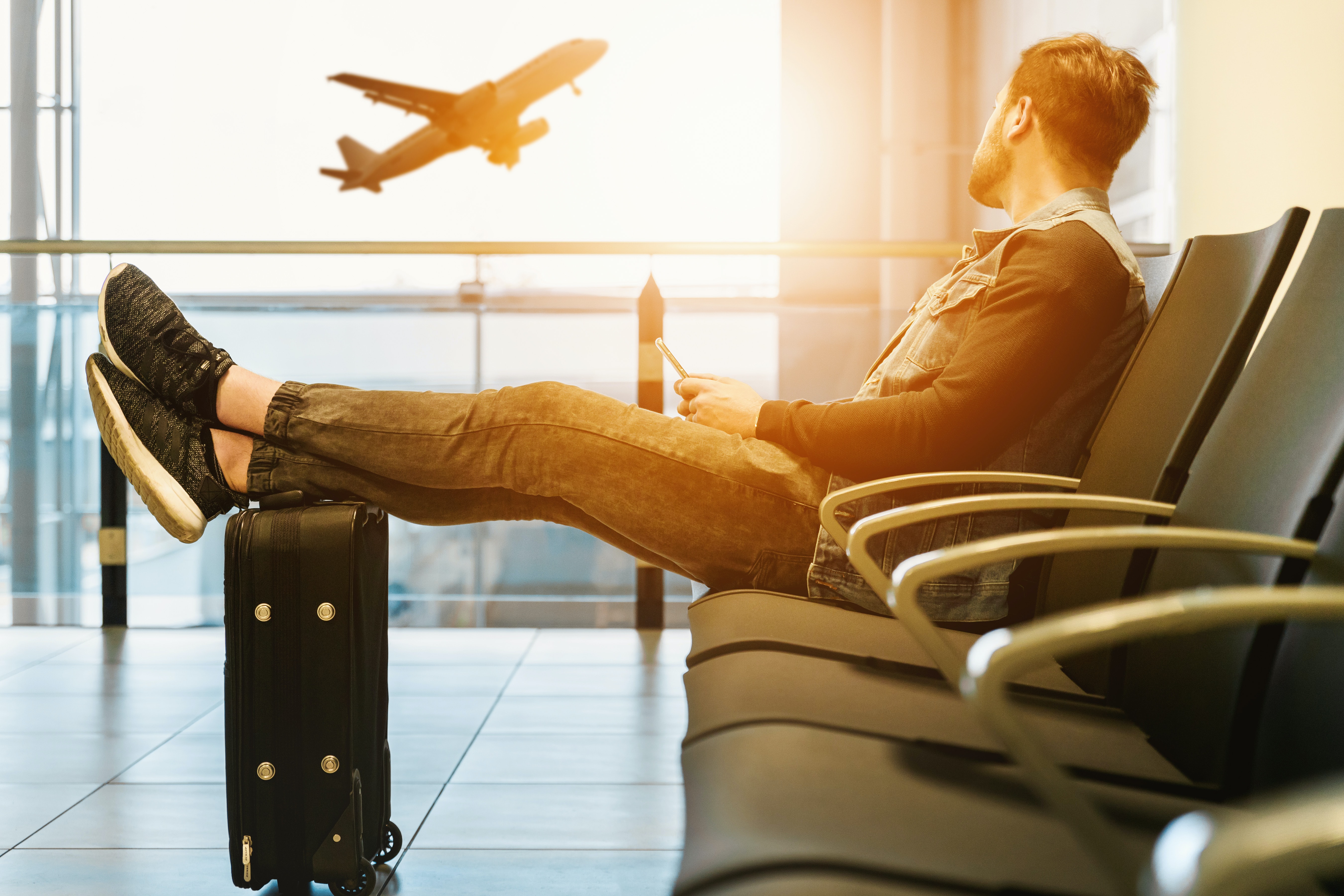
Whether you're traveling for business, heading home for the holidays, or escaping to an unknown destination for a well deserved vacation, air traveling can be more of a burden than a relaxing first class experience.
From anxiety and panic, to jet lag and stress, many air travelers find themselves in need of sedative-like medications to help calm or relax them before they float through the sky in a big metal tube with wings.
But here’s the issue with sedative-like pharmaceutical drugs: they don’t always wear off the way we like, thus making us feel groggy, confused, or restless. They can also cause an array of unwanted side effects:
-
Dizziness
-
Confusion
-
Problems with movement
-
Memory loss
-
Slowed heart rate (especially when mixed with alcohol)
-
Worsens depression and anxiety
-
And much, much more…
So this isn’t exactly an ideal way to address the fear or burden of air travel. Thankfully, there’s a more natural, less invasive approach to mitigate the fear of flying: Cannabidiol, most popularly known as CBD.
Air travelers who consume CBD have reported feeling less anxious, fully relaxed, but never confused once they arrive at their destination. Just a few drops of high-quality CBD oil or even a per dosed CBD gummy can change your flight experience for the good.
But with traveling across state lines, borders, and international waters, is it even legal to fly with CBD oil?
This is a very popular question among CBD consumers, and we have the answer for you in this article. So take a break from packing your bags and read on to see if you can travel by plane with your much needed high-quality CBD oil products.
TSA and CBD oil
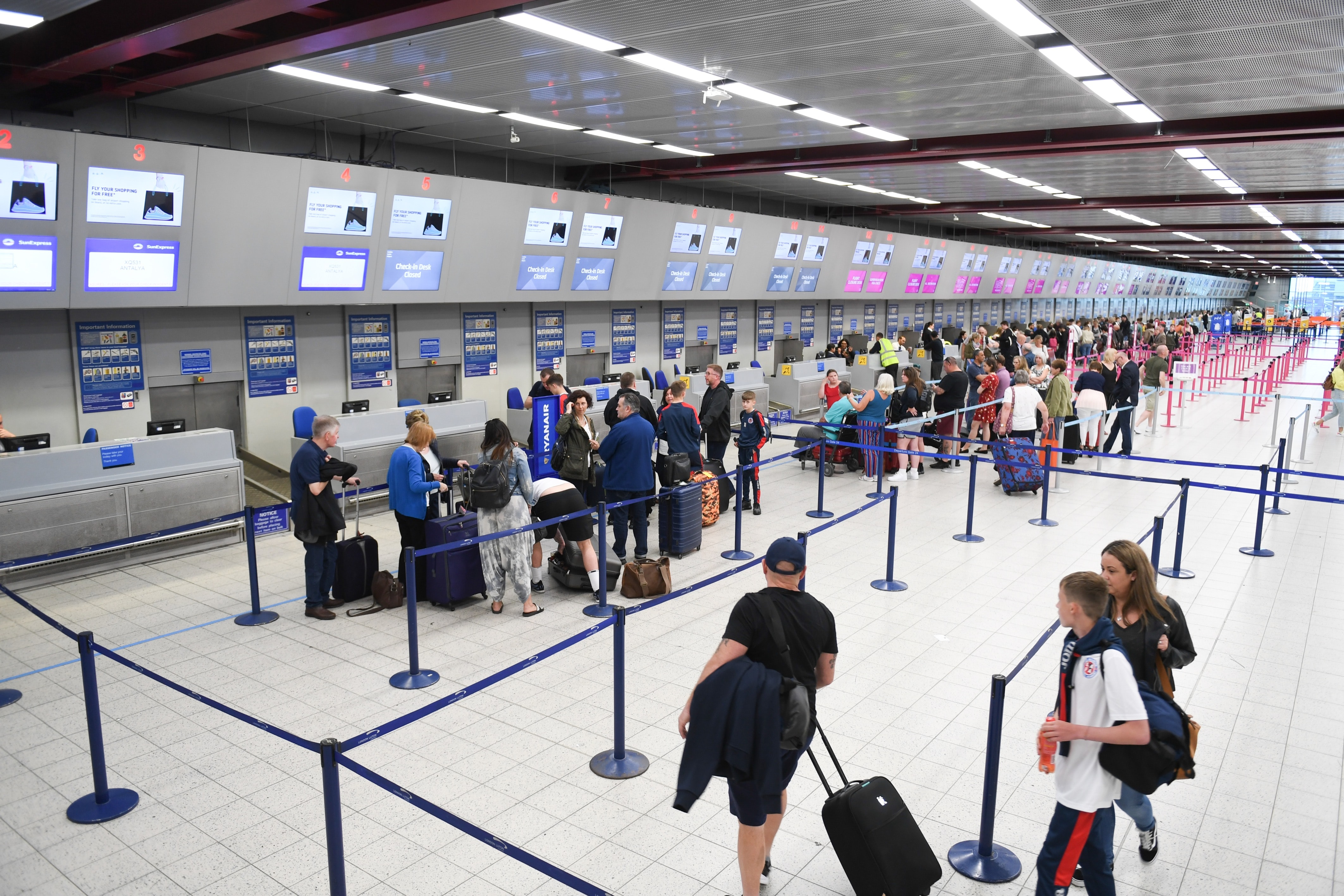
First let's discuss where the TSA (Transportation Security Administration) stands with CBD products.
In 2019, the TSA frowned upon any and all CBD based products, regardless if they came from marijuana or hemp. Fast forward to 2020 and now their stance is a bit more open. Here’s a statement from the TSA in their own words:
“We want you to have a pleasant experience at the airport and arrive safely at your destination. But getting caught while trying to fly with marijuana or cannabis-infused products can really harsh your mellow.
Marijuana and certain cannabis infused products, including some Cannabidiol (CBD) oil, remain illegal under federal law except for products that contain no more than 0.3 percent THC on a dry weight basis or that are approved by FDA.”
So for those who rely on CBD not just for their fear of flying but for other debilitating health conditions, as long as their CBD products are hemp-derived and contain no more than 0.3%, they’re safe to carry their CBD on their next flight.
Look, we know that going through the TSA checkpoints are no fun. They’re actually pretty intimidating, annoying, and time consuming, so it’s easy to view TSA officers as enemies of the cannabis industry. But it should be noted that these officers are only doing their job…
You see, they’re not actively looking to confiscate your expensive top of line CBD oil. They’re not even actively looking for other, more illicit drugs like marijuana, cocaine, or heroin. Their number one focus is to ensure your safety, as well as the safety of other passengers and workers on the many flights that come in and out of the airport each day.
They’re strictly looking for potential threats, but if they come across someone carrying illegal drugs, then they are required by law to take action. And as of 2020, as long your CBD is hemp-derived, then you should have no problems.
And to avoid any further issues with the TSA, it’s best that you follow their 3-1-1 liquids rule. Meaning all liquids should remain no more than 3.4 ounces or 100 milliliters. Luckly, most high performing CBD oils fall within those requirements.
But here’s where the real issues arise: Is your CBD truly hemp-derived?
Is CBD oil legal?
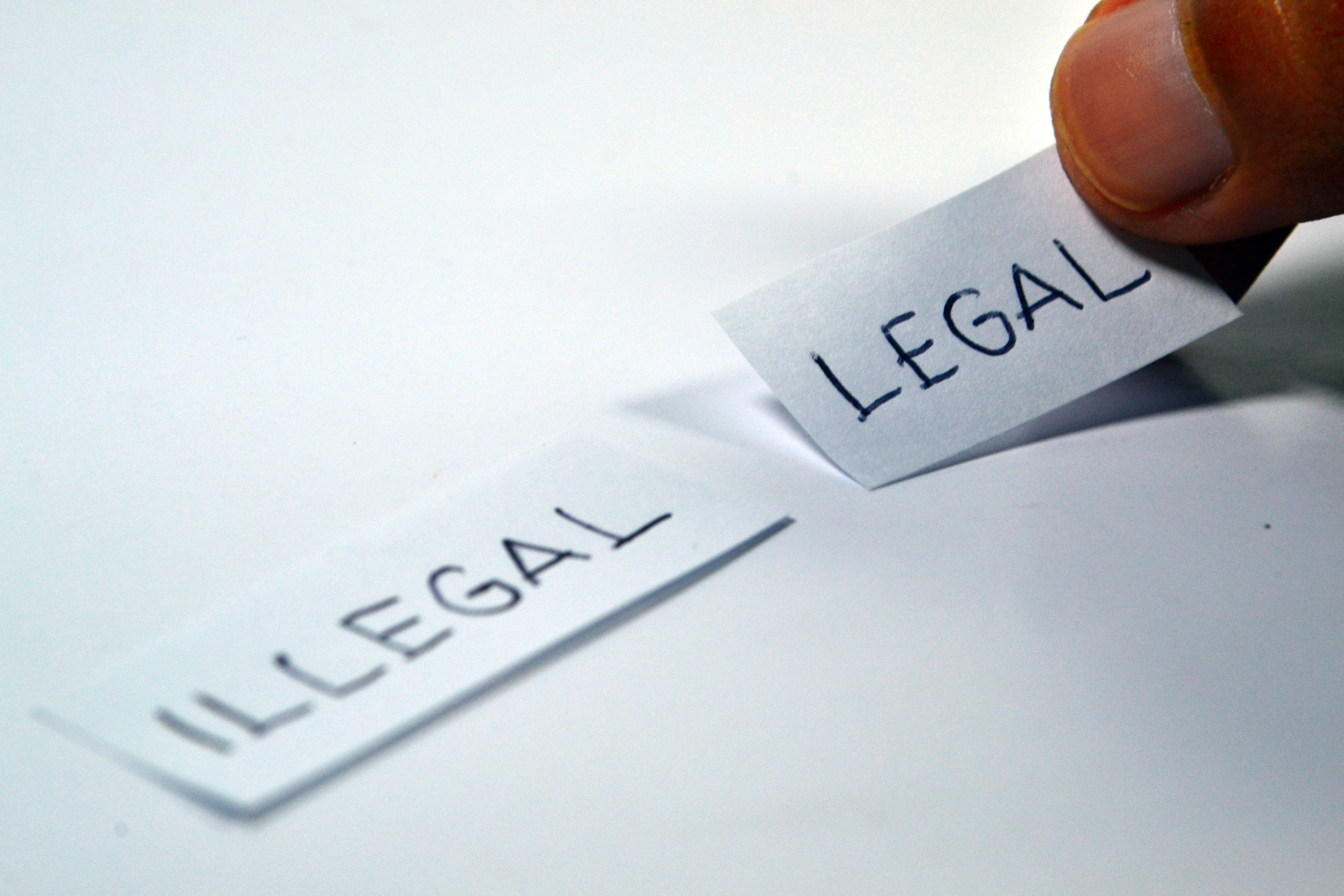
Now this may sound like an easy question to answer but you may be surprised by just how complicated the answer it to this popular question…
After all, various CBD brands are flooding the market. They’re even in big chain stores like Whole Foods, CVS, and Walgreens. So that means they must be legal, right?
Well, if we’re strictly talking about being “federally legal”, then yes, CBD is federally legal as long as it is derived from hemp. But this doesn’t mean that hemp-derived CBD products are legal across the board or across the world.
Let us explain…
Thanks to the 2018 Farm Bill, hemp has been removed from the Controlled Substances Act, but it now remains in the hands of the Food and Drug Administration. So its true legality falls into a bit of a grey area. Confused yet? Yeah, we are too. But stay with us…
The reason the FDA, and even the FTC, have had such a hard time determining if hemp-derived CBD products should be fully legalized, is because hemp and marijuana look almost identical (chemically speaking).
Their argument is that now cannabis breeders are able to extract the THC from marijuana-derived CBD products. And while we know CBD is non-psychoactive regardless if it comes from marijuana or hemp, marijuana is still federally illegal.
This is because marijuana contains much higher levels of THC than hemp, which only contains a trace amount (0.3% to be exact).
This is why the CBD industry is so poorly unregulated. In fact, other than Epidiolex (a plant-derived CBD based oral medication), the FDA has yet to approve any hemp-derived CBD that is added to foods, drinks, or is labeled as a dietary supplement.
So technically, the hemp-derived CBD products you see being marketed aren’t actually legal according to the FDA. But according to the 2018 Farm Bill, they are.
And despite where the FDA stands with hemp-derived CBD products, thousands of customers are purchasing CBD-infused products everyday.
Again, it’s easy to view the FDA as the enemy of the CBD industry, but here’s the good news… The FDA isn’t actively looking to shut every single CBD company down. They’re not even looking to arrest every single person who pops a high-quality CBD gummy.
They’re simply looking for CBD companies that advertise false claims that their CBD products can cure, treat, diagnose, or prevent unwanted symptoms or diseases. And for that, we agree!
So the real question isn’t if you can fly on a plane with CBD or even if CBD is legal. The real question is, does the destination you're flying to allow you to have possession of hemp-derived CBD products?
In what states is CBD oil legal?
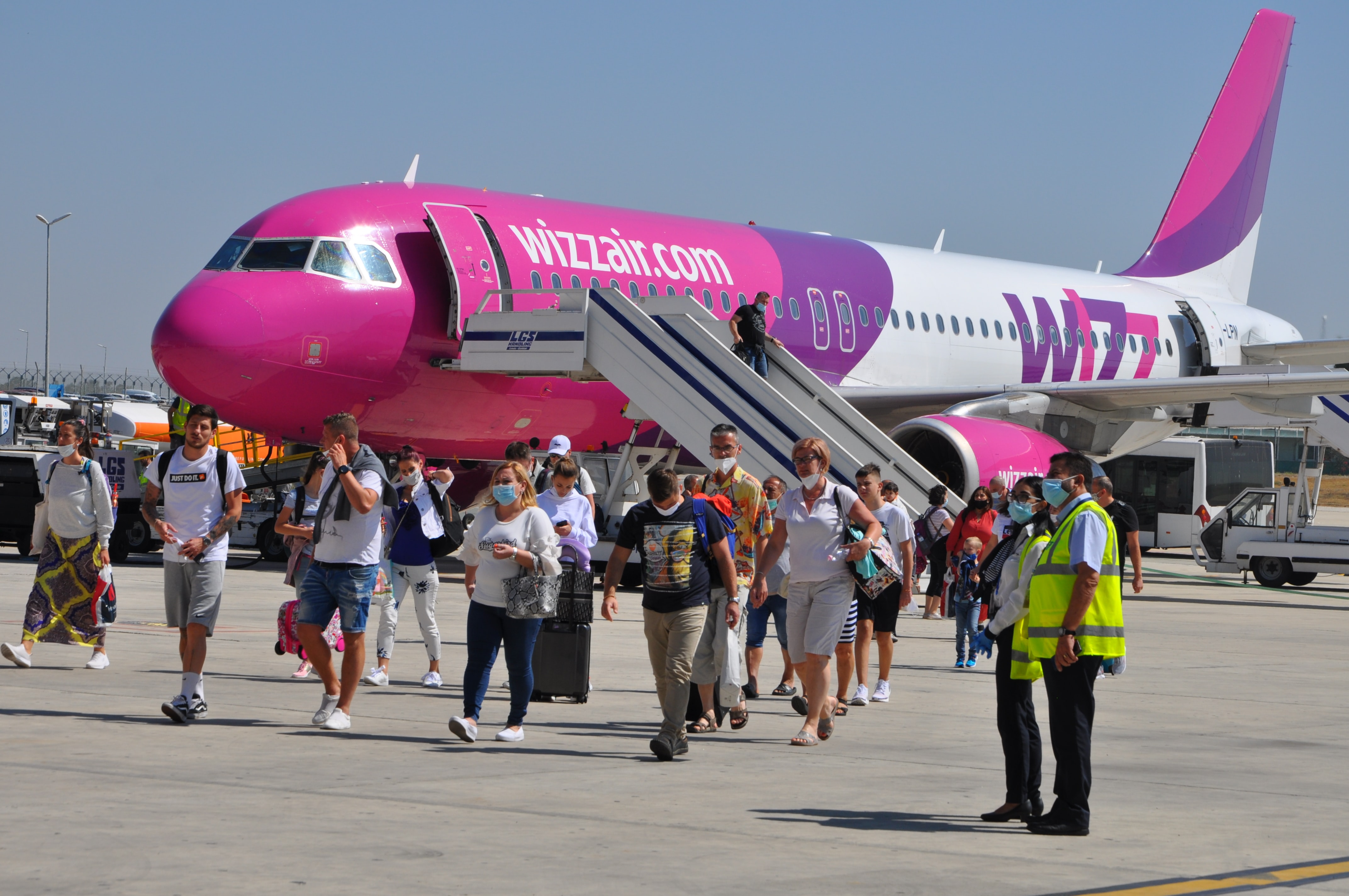
The 2018 Farm Bill basically paved the way for the CBD industry to be what it is today. There’s just one small hiccup: it allowed each state in America to set their own individual laws regarding CBD and all things cannabis.
So while hemp-derived CBD is federally legal across the board, individual states can still prevent the selling and purchasing of hemp-derived products within their state.
For example, let’s say you're flying from a cannabis legal state like Oregon or Colorado and you're wanting to visit Idaho. Chances are, you’ll likely have no issue flying out of your state with CBD, but you may have some issues flying into Idaho or even back out of Idaho.
This is because Idaho has yet to legalize anything related to hemp-derived CBD. In fact, all things related to cannabis are illegal in that state. Whereas their neighboring state Oregon has fully legalized all things cannabis.
In order for you to have no issues with your hemp-derived CBD products, you first need to research where you’re flying to. Look up their laws on hemp-derived CBD, and if they recommend you shouldn’t travel with it, then it might be best for you to leave the CBD at home.
And when it comes to international travel, well let’s just say the regulations and laws regarding all things cannabis are a little more complicated.
But we get it… For most CBD users, certain high-quality CBD oil products aren't just a trend for them, they’re the only thing that helps address their health conditions. For situations like these, it's best to research the cannabis laws of the country you're planning on visiting. It may even help to contact the US Embassy of that country to get more information regarding your CBD products.
However, it’s fair to say that certain countries have stricter laws when it comes to cannabis, regardless if it’s hemp-derived or not. So it’s best to be cautious and either leave your CBD products at home, or opt for in-state travel instead.
Here’s the good news: If you're traveling to a state that welcomes hemp-derived CBD, then you have nothing to worry about. It’s just always best to research beforehand when traveling with CBD. That’s why we recommend you explore which states have legalized CBD oil and which ones haven’t.
Traveling with CBD oil

Now that you have a better idea where the TSA and the FDA stand with hemp-derived CBD, you might be wondering which CBD products are best for air travel.
Well, we’re glad you asked.
Now, we all know that CBD oil is perhaps the best value for your money. We also know that high-quality CBD oil is more effective than other CBD products on the market today. But transporting CBD oil can be a bit of a hassle, not to mention potentially messy.
Unless you’re planning on moving for good and air travel is your only means of transportation, then it makes total sense for you to pack your CBD oil. And in the event that you’ve tried several CBD products, and CBD oil or tinctures seem to be the only thing that works for you, that makes sense too.
But if you’re only going to be away from home for a short time and other CBD products have worked for you, then it might be easier for you to pack a CBD product that’s a little easier to transport and consume.
For example, CBD gummies, CBD capsules, and CBD softgels are perhaps the most travel-friendly CBD products on the market. They’re already pre-dosed and they produce zero mess. You simply pop a gummy, capsule, or softgel in your mouth and wait for it to take effect.
Other CBD products can work as well:
Just keep in mind that these products need to be no more than 3.4 ounces or else you’ll be flagged by the TSA. Also, it’s important to note that unless you plan on keeping your CBD chocolates in your personal bag or carry-on, it’s likely that they may melt.
CBD oil plane travel
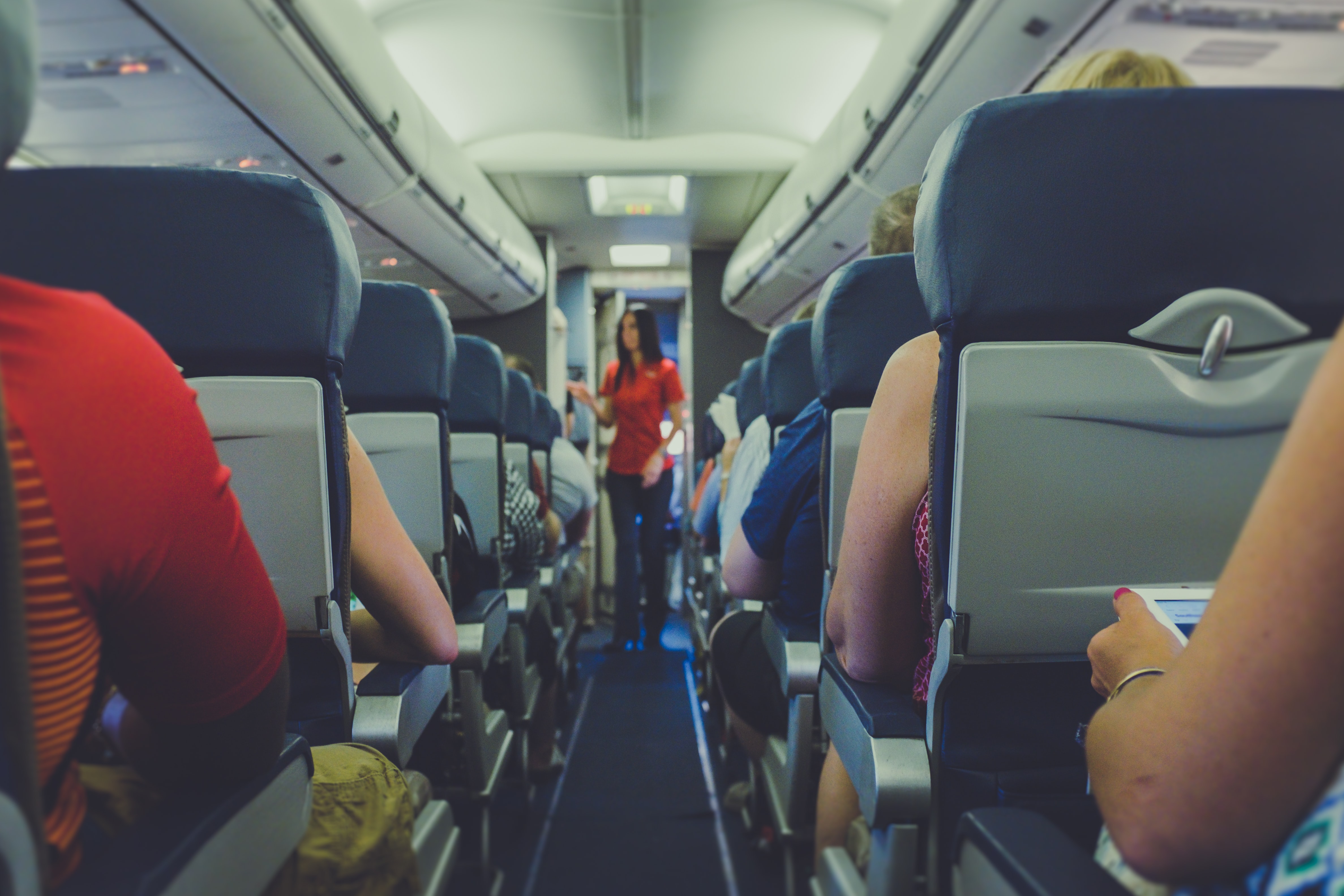
Regardless if you love flying or hate being up in the air, the laws surrounding hemp-derived CBD are changing. Now more than ever, people are able to fly with their therapeutic CBD products in hand without issue, as long as they’re flying to a place that welcomes those products.
And if you’re a frequent flyer and have been on the fence about CBD oil because you fear what the TSA might do, know that they aren’t looking to arrest you for your hemp-derived CBD products. In fact, the most they will likely do is just throw your CBD product away if they suspect it isn’t hemp-derived.
That said, be sure to only purchase CBD products from reputable CBD companies that state their CBD is sourced from American-grown hemp farmers. And to make sure that you aren’t getting a poor quality product, it helps to look for the following:
-
Third party testing of each product before it hits the market
-
Organic ingredients that are free from pesticides, GMOs, herbicides, heavy metals, and other toxic contaminants
-
CBD potency and dosing suggestions are displayed on the label of the bottle
-
Certificate of Analysis is available on their website to ensure their products have been tested
Following these key factors will ensure that you not only have a high-quality CBD product, but one that will provide peace of mind that as you approach the TSA, you’ll know that your CBD product falls within their guidelines.


